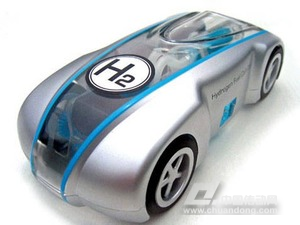
On October 20, Vice Chairman of the National Committee of the Chinese People's Political Consultative Conference, Minister of Science and Technology Wan Gang and Director of the General Office of the Ministry of Science and Technology Ma Lianfang, Director of the Department of High-tech Development and Industrialization of the Ministry of Science and Technology Qin Yong, Director of the Torch Center of the Ministry of Science and Technology Zhang Zhihong, and others went to Yihuatong Technology Co., Ltd. Limited inspection.
According to reports, Yihua Tong's core products include hydrogen fuel cell engines and its associated controllers. Its self-developed third-generation hydrogen fuel cell engine can realize the function of low temperature starting at minus 30°C, cold storage below 46°C, and automatic shutdown protection. It is now equipped with Beiqi Futian Auhui series hydrogen fuel cell bus.
Although the motorization of automobiles is on a global scale, it has not caused any impact on the market application of hydrogen fuel cell vehicles. Its industry prospects and product advantages are still generally optimistic in the industry, including international giants such as Toyota, Mercedes Benz and General Motors. Electric vehicle plans have been released, but its fuel cell vehicle strategy has also been steadily advancing.
Compared with lithium batteries, fuel cells have the advantages of high safety, long mileage, fast fuel filling, zero emissions, and no secondary pollution of waste batteries. Their market prospects and industrial advantages are huge, and they are increasingly valued by the market.
In recent years, the dynamic heat of the hydrogen fuel cell market has continued to rise, and related support policies have also been introduced frequently. Industry insiders predict that in the next three to five years, that is around 2020, China's hydrogen energy industry will enter an explosion period.
This year, a total of six fuel cell vehicles entered the list of new energy automobile models that are exempted from vehicle purchase tax. On May 9th, the National Fuel Cell and Flow Battery Standardization Technical Committee National Standards Drafting Working Group meeting was held as scheduled to remove obstacles for the development of the hydrogen fuel cell market.
At the investment promotion conference for the new energy automotive (hydrogen) industry in the Nanhai District of Foshan City promoted by the Ministry of Science and Technology and the United Nations Development Program, Wulong Electric Vehicles invested over RMB 10 billion in the development of the Yangtze River hydrogen power (Foshan) R&D center and vehicle production project. . At the same time, the Foton Motor hydrogen fuel bus officially commercialized, and the nation’s first fully commercialized hydrogen refueling station was officially put into use.
However, compared with foreign countries, China's hydrogen fuel cell technology reserves are relatively weak, and the development of hydrogen fuel vehicles is still in its infancy. Under the constant increase of policies and markets, many bus companies including Yutong, Beiqi Foton, Nanjing Jinlong have also been accelerating the layout of the hydrogen fuel market.
According to an analysis of auto experts, hydrogen fuel cell vehicles in China start with commercial vehicles such as hydrogen fuel cell buses rather than private cars like Toyota, mainly for the volume, energy density, and reliability of hydrogen fuel cells such as passenger cars. Relatively low demand for domestic passenger cars.
The restrictions on the construction of hydrogen infrastructure are also a cause. Passenger cars are driven on fixed lines and the vehicles are concentrated. It is relatively easy to build supporting hydrogen refueling stations. Passenger cars travel routes are not fixed and vehicles are dispersed. Popularization of refueling station construction site selection and construction Both the quantity and the economics of operations are problems that require the concerted efforts of the society.
Although China's hydrogen fuel passenger vehicles have a certain gap from marketization, related technologies are still in a rapid development stage. Toyota's opening up of 5,680 patents in the field of hydrogen fuel also lays a solid foundation for the construction of China's hydrogen fuel vehicle system and industry. .
It is understood that the cost of Futian Auhui's latest generation of hydrogen fuel cell bus has been reduced from more than 8 million yuan to more than 1 million yuan, plus the national subsidies for hydrogen fuel cell buses, and the customer’s purchase cost is about tens. Million yuan, hydrogenation time is only 5-10 minutes, filling 400-500km once.
Minister Wan Gang stated at the 19th China Association of Science and Technology annual meeting held in Changchun, Jilin, that hydrogen energy and electricity will coexist and complement each other in the future, and jointly support the development of the new energy automotive industry. It is necessary to strengthen collaborative innovation and accelerate the promotion of hydrogen. Can fully develop the fuel cell industry.
Epoxy fiberglass rod,Polymer insulator,Corrosion Core Rod Materials for Insulators
TAIZHOU HUADONG INSULATED MATERIAL CO.,LTD , https://www.thim-insulator.com